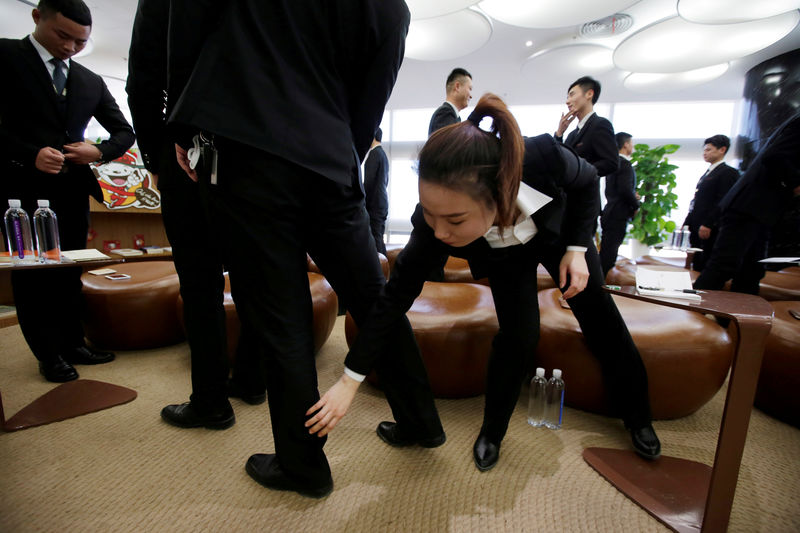Investing.com’s stocks of the week
BEIJING (Reuters) - Growth in China's services sector softened slightly in February but remained robust, prompting companies to hire more workers for the 18th month in a row, a private business survey showed.
The Caixin/Markit services purchasing managers' index (PMI) fell to 54.2 in February from January's 68-month high of 54.7, but was still above recent trends and well above the 50-mark that separates growth from contraction.
Despite the figures being seasonally adjusted, many economists think the Lunar New Year effect is so sweeping that it inevitably clouds China's readings early in the year. This year the week-long holiday fell in February, which may have contributed to new business growing at the slowest pace in three months.
Many businesses start to scale back operations ahead of time before shutting for the entire holiday or longer.
However, spending on consumer services was likely to be boosted by the festivities. The retail and catering sectors posted sales of 926 billion yuan ($146 billion) during the holiday.
The business outlook for the next 12 months picked up from a four-month low as new marketing strategies, upcoming projects and expectations that market conditions will continue to improve all supported optimism.
The findings largely echoed those in an official gauge of the non-manufacturing sector released last week, and bode well for Beijing's longer-term goal of overhauling and modernizing its economic growth model to one driven more by consumption than heavy industry, investment and exports.
The government is counting particularly on growth in high value-added areas such as finance and technology.
The services sector already accounts for over half of China's economy, with rising wages giving its consumers more spending power at home and abroad.
Like China's factories, its services firms continued to face strong input cost pressures in February, though they have been able to pass on some of the burden to customers, raising output charges for a sixth month.
This points to a further improvement in firms' profitability, Zhengsheng Zhong, Director of Macroeconomic Analysis at CEBM Group, in a note accompanying the release.
Caixin's composite PMI covering both the manufacturing and services sectors showed a similar pattern of solid but slightly softer growth, falling to 53.3 in February from the previous month's multi-year high of 53.7.
"Manufacturing demand still remained stable, service industry prices rose towards convergence, and the stable condition of the macro economy didn't waver," said Zhong.
Economists polled by Reuters expect China's economic growth will moderate to around 6.5 percent this year from 6.9 percent in 2017 as the property market cools and as authorities press ahead with a clampdown on riskier financial activity that is driving up borrowing costs.
